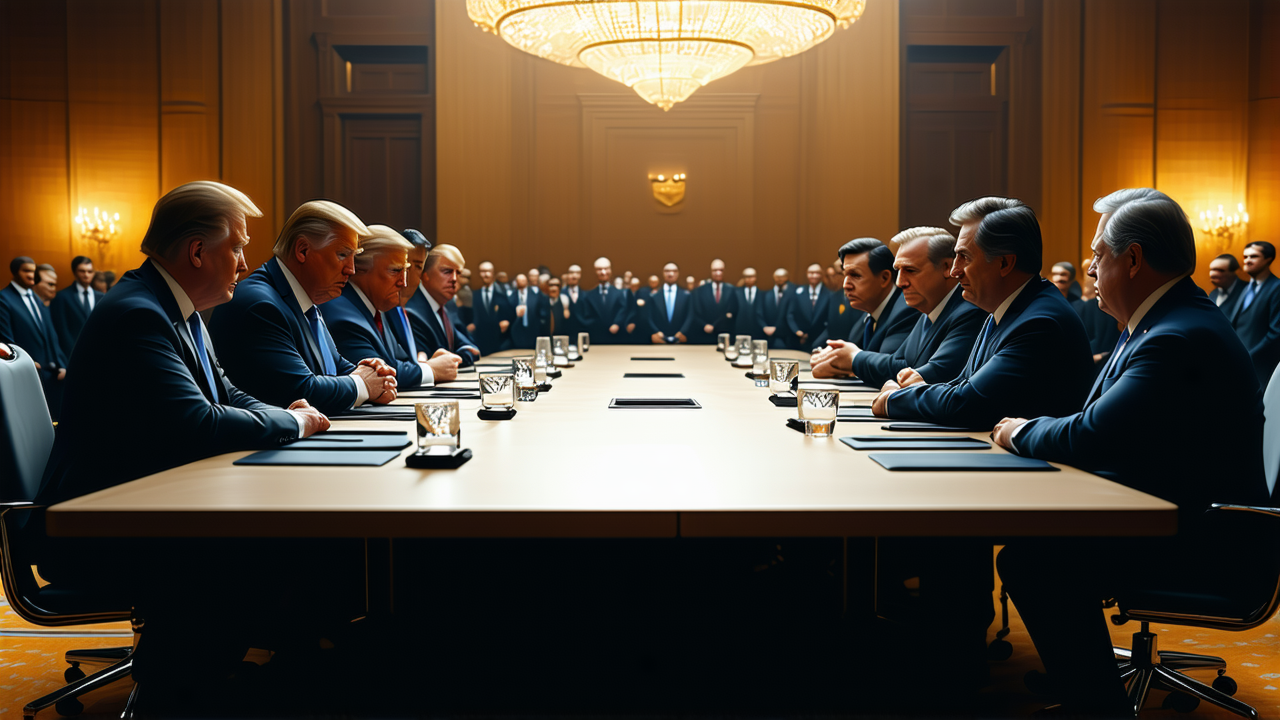Diverging Narratives Emerge as Trump and Putin Consider Potential Summit
Diverging Narratives Emerge as Trump and Putin Consider Potential Summit
As the prospect of a potential summit between U.S. President Donald Trump and Russian President Vladimir Putin gains momentum, differing perspectives from both sides are beginning to surface, revealing a complex set of expectations and conditions.
Conflicting Accounts on Summit Details
A day after Trump informed European leaders of his intent to meet with Putin, the U.S. and Russian sides have presented conflicting narratives regarding the potential meeting. While the Kremlin claimed a summit could take place as early as next week, U.S. officials insisted that no formal agreement had been reached, with details such as the date, location, and format still under discussion.
If the meeting does proceed, it would mark the first such encounter between the two leaders since 2021, when Putin met with former U.S. President Joe Biden in Geneva, Switzerland. This potential summit comes against the backdrop of Russia’s full-scale invasion of Ukraine, which began in February 2022.
Trilateral Talks Spark Surprise and Concern
Trump made it clear during a phone call with European leaders—including the British prime minister, German chancellor, and Finnish president—that he intended to meet both Putin and Ukrainian President Volodymyr Zelensky. The idea of a trilateral meeting, however, caught two European officials by surprise.
The White House confirmed that Trump is open to meeting with both Putin and Zelensky. However, Putin appeared hesitant, suggesting that certain conditions must be met before such a meeting could take place. Meanwhile, U.S. special envoy Steve Witkoff, who met with Putin in Moscow, has been instrumental in brokering discussions, but Moscow has yet to respond to his proposal for a trilateral meeting.
Zelensky Insists on Inclusion
Zelensky has been vocal in his insistence on a three-way meeting, emphasizing that Ukraine should be a participant in any negotiations. In his nightly address, Zelensky stated that “everyone knows that key decisions in Russia are made by one person. And that this person is afraid of sanctions from the United States of America… it is only fair that Ukraine should be a participant in the negotiations.”
Disagreement on Who Proposed the Meeting
The White House and the Kremlin have also clashed over who initiated the proposal for the summit. The U.S. claims that the Russians expressed their desire to meet with Trump, while the Kremlin asserts that the American side made the first move. Putin himself downplayed the issue, stating that “who was the first to say and what, it doesn’t matter anymore.”
Potential Locations and Diplomatic Hurdles
As of Thursday, no location had been finalized for the talks. However, Putin suggested the United Arab Emirates could be a “perfect” option, as he was meeting with the leader of the Gulf nation in Moscow. Other Middle Eastern locations have also been discussed, though a European meeting is considered unlikely due to concerns over neutrality.
Trump’s Frustration and Sanctions Deadline
Trump’s efforts to broker a peace deal between Russia and Ukraine have faced challenges. He has imposed a deadline on Moscow, which is set to expire on Friday, to agree to a ceasefire or face secondary sanctions. In response, the U.S. has already imposed an additional 25 percent tariff on India for its imports of Russian oil.
Trump has expressed frustration with Putin’s actions, noting that “we had a deal done four times and then you go home and you see (that Russia) just attacked a nursing home or something in Kyiv. So what the hell was that all about?”
Zelensky’s Optimism Amid Skepticism
Zelensky, who spoke to Trump following the meeting between Putin and Witkoff, said “it seems that Russia is now more inclined toward (a) ceasefire.” He noted that “the pressure on Russia is working. But the main thing is that they do not deceive us in the details. Neither us, nor the United States.”
As the summit looms, the differing expectations and conditions from both the U.S. and Russia could shape the outcome of any discussions. Whether or not the meeting takes place, the diplomatic chessboard continues to be played with high stakes and uncertain results.
